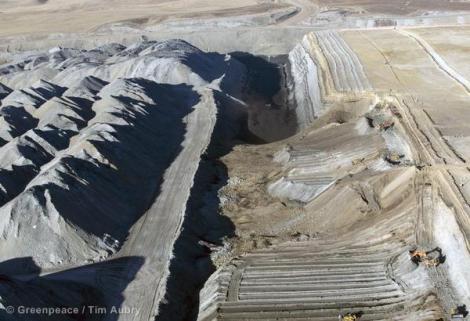Senator Ed Markey called for a suspension of new federal coal lease sales this week, following the release of a Government Accountability Office (GAO) report that highlighted problems with the Department of Interior’s coal leasing program. Markey detailed his concerns in a letter to Interior Secretary Sally Jewell with eight questions about the coal leasing program, including one focused on the BLM’s failure to account for coal exports:
BLM’s guidance states that appraisal reports determining Fair Market Value should consider specific markets for the coal being leased, including export potential. But the GAO found that some offices, such as Wyoming, typically contained only “generic boilerplate statements about the possibility of coal exports in the future and the uncertainty surrounding them.” Further, many other states did not consider coal exports at all when valuing federal coal, according to the GAO. What steps are you taking to protect taxpayers by ensuring that the BLM follows its guidance to conduct meaningful consideration of the possibility of coal exports in determining the Fair Market Value of public coal resources, given that coal leases are issued for a period of at least 20 years?
Answers from Secretary Jewell to Markey’s questions are important, because so far it seems that determining how to handle the coal industry’s export plans for taxpayer owned coal has been left to the whims of state BLM officials, without any meaningful oversight from the Department of Interior. And their efforts to explain the export of our coal show just how clueless the BLM is about the industry’s plans.
Here’s one attempt by a BLM spokesperson, to the Associated Press: “We recognize that it’s going to be burned; we just don’t know where it’s going to be burned.” If that’s not very comforting, how about this answer from the BLM’s chief of solid minerals branch in Wyoming, who told Bloomberg BNA: “Our position in BLM Wyoming is that the coal isn’t being used for export.”
That uncritical assumption helps explain how the BLM office in Wyoming could decide to let Peabody Energy expand its North Antelope Rochelle mine (the largest in the United States) and justify it by asserting that the coal will help “meet the national coal demand,” claiming that the public interest would be served “because doing so provides a reliable, continuous supply of stable and affordable energy for consumers throughout the country.”
With these favorable assessments from their friends at BLM Wyoming, Peabody successfully expanded its North Antelope Rochelle mine in 2012 with two huge coal lease sales. One of those lease sales, the North Porcupine Tract, gave Peabody access to an additional 721 million tons of our coal, unlocking more than a gigaton of carbon pollution, and cheating taxpayers out of an estimated $1.2 billion, according to an analysis by the Institute for Energy Economics and Financial Analysis.
And having bought that coal to supposedly “meet the national coal demand,” Peabody CEO Gregory Boyce is now bragging to the Wall Street Journal about exporting it abroad:
Mines in Wyoming’s Powder River Basin offer a healthy future for the U.S. coal industry, Mr. Boyce says. “We have the largest mine in the world there, and it has one of the lowest cost structures for a mine of its size,” he says. “The coal there travels to all corners of the world.“
In other words, as Senator Markey put it: “Taxpayers are likely losing out so that coal companies can reap a windfall and export that coal overseas where it is burned, worsening climate change. This is a bad deal all around.”

Strip mining coal in the Powder River Basin

